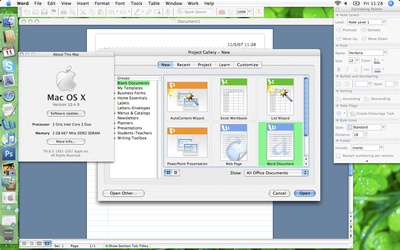Microsoft Office Page 1 Of X Mac 4,5/5 2126 reviews
2020-4-4 Be more creative and achieve what matters with Outlook, OneDrive, Word, Excel, PowerPoint, OneNote, SharePoint, Microsoft Teams, Yammer, and more. It's always up to date With an Office 365 subscription, you get the latest Office apps—both the desktop.
- Scroll until you see Page X of Y and select a format. Select Close Header and Footer, or double-click anywhere outside the header or footer area. Double-click in the footer or header where you want page numbering.
- Insert the current and total page numbers in an X of Y format into your document. Skip to main content. Word for Office 365 Word for Office 365 for Mac Word for the web Word 2019 Word 2019 for Mac Word 2016 Word 2013 Word 2010 Word 2016 for Mac Word for. Office Dev Center; Microsoft Garage; Company. Careers; About Microsoft; Company news.
A lot of people want to use different page numbering schemes in different parts of their documents. And a lot of people want to use “page x of y pages” page numbering in their documents.
Sometimes, people want to use “page x of y pages” page numbering in just a part of their documents.
Page 1 Of 365
It all gets down to linking–or unlinking.
If your sections are not linked, you can use a different numbering scheme in each section. You can use i, ii, iii in one section and page x of y pages in another section.
The Header and Footer galleries include some page x of y pages numbering formats. Or you can use field codes to do it yourself.
But first, click where you want to begin the page x of y pages numbering.
Click the Page Layout tab, and then click Breaks and click Next Page under Section Breaks.
Now you have a new section. Double-click in the header or footer (wherever you want to put your page number), and then click Link to Previous to unlink your new section from all the preceding pages. If Link to Previous is not orange, you’re ready to go.
If Link to Previous is orange, you’re still linked, so be sure to click it.
Now, you can click Page Number, click Top of Page or Bottom of Page or Current Position, and then scroll down until you see Page X of Y.
Click the page number option that you want to use. It will look something like this:
Wait! There’s more
If you want one more thing in your header or footer, such as the document title or your name, skip the gallery and use field codes.
You still want a new section, and you still want to be sure that it isn’t linked to the previous pages in your document.
A Page Of Madness
Now, if you’re still in the header or footer, press TAB until the cursor is where you want the page number.
Type the word page and a space, then click the Insert tab, click Quick Parts, and click Field. Use the Page and NumPages fields to get the page number and the total number of pages. You can also use the step-by-step instructions.

Now you have your page x of y pages numbering. It looks something like this:
(I turned on field code shading so that you can see where the field codes are.)

If you want to use a different numbering format later in the document, be sure to add another section break and to unlink that section.
Microsoft Office Page 1 Of X Machina
And if you know right from the start that you want to use different numbering formats, insert those section breaks and unlink them first. That way, you can be sure to get the right numbers where you want them.
Is microsoft sculpt keyboard compatible with mac. Sep 25, 2017 The issue is with Microsoft's software which does not have the right access permissions set up on Mac OS X. Microsoft has to update their software for this set of devices and make it compatible with Mac OS X El Captain (10.11.1) in order for the Sculpt ergonomic desktop set to work. Mar 22, 2016 Configuring Microsoft Sculpt Keyboard for Mac. I like the Microsoft Sculpt ergonomic keyboard, and here’s how I’ve configured it to work well on my Mac: In System Preferences-Keyboard select “Modifier Keys” and enter these settings – be sure you’ve selected “Microsoft Nano Transceiver” at the top: I’ve remapped Caps Lock to Escape using Seil.
Page One Singapore
For all the details of page numbering and headers and footers, see Add or remove headers, footers, and page numbers.
Out Of Page
— Joannie Stangeland